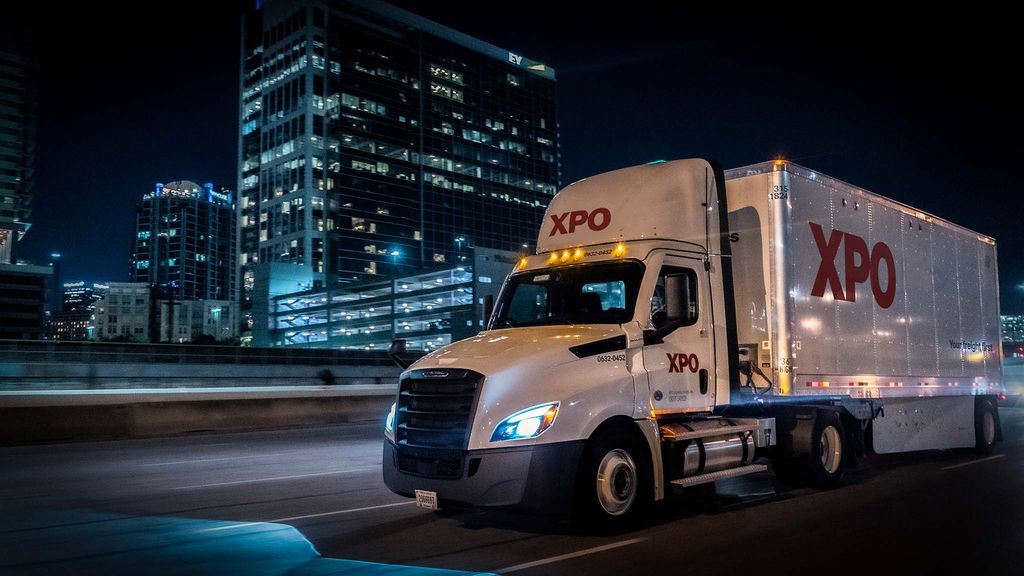5 Steps to Launch Your Technician Career
Technicians keep tractor trailers and heavy trucks running safely and efficiently. They diagnose problems, make repairs and perform routine maintenance to ensure every vehicle is road ready.
The good news? You don’t need prior experience to get started. Most careers begin with an entry-level technician specialist role, then move step by step through training, apprenticeships and hands-on practice. From there, you can grow into a full technician and even advance into leadership.
Note: The terms mechanic and technician are often used interchangeably in the industry. Job postings may say either, but once you’re hired, it’s your choice which you prefer. Professionals with advanced expertise are often referred to as senior or lead technicians.
1. Begin as a technician specialist
Even with minimal mechanical background, you can start here. Your days will likely be spent shadowing experienced technicians, who will teach you foundational skills and validate your work.
You’ll learn about the equipment in the fleet, gain experience with components like SafeStack bars and tires, while furthering your knowledge of trailer repairs and maintaining accurate service records. Mastering these principles will build your foundation fast.
2. Become a trailer technician
Once stepping into the role of trailer technician, you’ll be able to take what you’ve learned about Class A vehicles and roll up your sleeves. It’s a position with a competitive salary that could start at $30/hour depending on your location. It also provides further opportunities for advancement.
As a trailer technician, you can expect to:
- Inspect and perform work in, on or under parts of trailers
- Perform preventative maintenance on trailing equipment
- Repair or rebuild all or part of equipment systems
- Operate specialized tooling
- Ensure that trailers meet the regulations of the United States Department of Transportation (DOT) for road safety
3. Become a power technician apprentice
After spending time as a trailer technician, you may be interested in progressing to a power technician. Working as an apprentice will help you acquire the skills needed to work on all equipment in the shop, and when specific milestones are achieved, an apprentice program offers benefits like pay raises and career advancement.
As an apprentice, you’ll start by shadowing experienced technicians and learning the ins and outs of Class A vehicles. Initial training covers electrical components, brakes, wheels and air valves in the brake chamber.
Once you’ve built that foundation, you’ll move on to small engines like forklifts, where you’ll dive into transmissions, hydraulics, brakes and control valves.
From there, it’s time for the big leagues: working on full truck engines. This final stage prepares you with the advanced skills needed to succeed as a Class A technician.
You will:
- Run diagnostics
- Perform preventative and routine maintenance on heavy trucks and tractor trailers
- Analyze major issues
- Complete repairs
- Make modifications
- Conduct inspections
4. Advance to Technician
Some trailer technicians choose to stay in that role, but if you want to expand your expertise, you can advance to a technician position.
While trailer technicians focus mainly on trailers, technicians handle the entire vehicle, from engines to brakes to steering systems. Responsibilities include routine maintenance, inspections, oil and battery checks and ensuring every component is road-ready.
Technicians use a range of tools, from pneumatic wrenches and hoists to welding equipment and diagnostic technology like motor analyzers, handheld computers and chassis charts, all while following strict safety procedures.
As a technician, you’ll also:
- Diagnose problems and validate repairs from the passenger seat
- Repair cooling and heating systems, replacing parts, valves, bearings and gears as needed
- Measure vehicle emissions to maintain them within acceptable levels
- Inspect clearances and dimensions to ensure parts meet manufacturer standards
5. Step into leadership
Once you’ve mastered the craft, you can steer your career into leadership as a lead technician or shop manager. You’ll oversee other mechanics, ensure standards are met, manage workflow, order parts and be the go-to problem solver. Even though others are performing the work, the proper completion of repairs, overhauls and maintenance is the responsibility of the lead technician.
You’re no longer just fixing trucks, but ensuring your team does it right, every time. This requires effective communication and the willingness to provide assistance, training and advice.
Get Started
You don’t need prior experience to begin your career as a technician. The entry-level technician specialist role is the perfect place to build your skills, gain hands-on experience and set yourself on a path to growth. With the proper external experience, schooling or certification, it is also possible to skip this step and begin as a trailer technician, apprentice or technician.
From there, you can work your way toward becoming a lead technician or shop manager, mastering your trade and guiding the next generation of mechanics along the way.
Not sure where to begin? Contact XPO here to learn more and take the first step.
Get the latest news and updates on XPO
Further Reading


